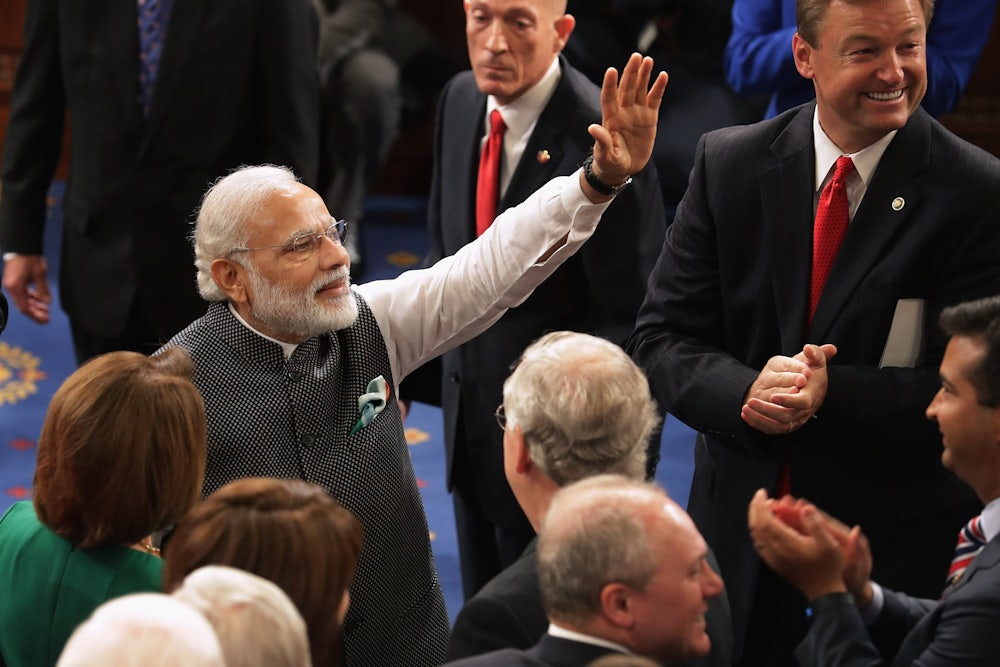As recently as 2005, he was barred from entering the country over suspicions that he had either orchestrated the massacre of 1,000 Muslims in his home state of Gujarat in 2002 or turned a blind eye as rampaging Hindu mobs killed men, women, and children. In addressing a joint session of Congress, Modi sought to put any doubts about his commitment to equality and tolerance to rest. He celebrated modern India’s “founding fathers,” specifically naming Mahatma Gandhi, whose vision of a diverse, pluralistic India has long been anathema to Hindu nationalists like Modi. “Eight hundred million of my countrymen may exercise the freedom of franchise once every five years,” he said. “But all the 1.25 billion of our citizens have freedom from fear—a freedom they exercise every moment of their lives.”
One is tempted to ask: Who exactly would they be afraid of? The possibility that the Indian equivalent of the most vile kind of segregationist was in their midst seemed lost on America’s lawmakers, who gave him standing ovations and laughed at his jokes about congressional dysfunction, spelling bees, and yoga. And for all his talk of religious toleration, the reality on the ground is different. As Siddhartha Deb wrote in a long profile of Modi for The New Republic, “Modi’s new India has amped up its sectarian Hindu nationalism, unleashing an astonishing degree of violence against all those who might not subscribe to this worldview.”
Politics always requires a certain degree of dissociation. There seems to be a sense in India that Modi, though imperfect, should be given a chance after years of corruption and mismanagement by the Congress Party. American politicians, very much including Barack Obama, have to recognize the importance of maintaining good relations with Modi, the leader of an enormous country that can serve as a bulwark against both China and terrorism. But that doesn’t make the spectacle any less grim.
